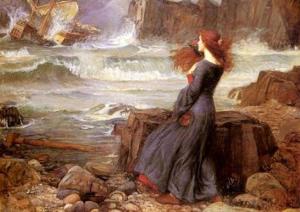Lord Montagu's Page: An Historical Romance
Nonfiction, Religion & Spirituality, New Age, History, Fiction & Literature| Author: | George Payne Rainsford James | ISBN: | 9781465542281 |
| Publisher: | Library of Alexandria | Publication: | March 8, 2015 |
| Imprint: | Language: | English |
| Author: | George Payne Rainsford James |
| ISBN: | 9781465542281 |
| Publisher: | Library of Alexandria |
| Publication: | March 8, 2015 |
| Imprint: | |
| Language: | English |
It was a dark and stormy night,—a very dark night indeed. No dog's mouth, whether terrier, mastiff, or Newfoundland, was ever so dark as that night. The hatches had been battened down, and every aperture but one, by which any of the great, curly-pated, leaping waves could jump into the vessel, had been closed. What vessel? the reader may perhaps inquire. Well, that being a piece of reasonable curiosity,—although I do wish, as a general thing, that readers would not be so impatient,—I will gratify it, and answer the inquirer's question; and, indeed, would have told him all about it in five minutes if he would but have given me time. What vessel? asks the reader. Why, a little, heavy-looking, fore-and-aft, one-masted ship, somewhat tubbish in form, which had battled with a not very favorable gale during a long stormy day, and had, as the sun went down, approached the coast of France, it might be somewhat too close for safety. The atmosphere in the cabin below was hot and oppressive. How indeed could it be otherwise, when not one breath of air, notwithstanding all the bullying and roaring of Boreas, had been able to get in during the whole day? But such being the case, and respiration in the little den being difficult, the only altogether terrestrial animal—sailors are, of course, amphibious—which that vessel contained had forced his way up to the deck through the only narrow outlet which had been left open. The amphibia have always a considerable dislike and some degree of contempt for all land-animals, and the five sailors, with their skipper, who formed all the crew so small a craft required, would probably have driven below the intruder upon their labors, had they had time, leisure, or light to notice him at all. But for near two hours he stood at the stern on the weather side of the ship, holding on by the bulwarks, wet to the skin, with his hat blown off and probably swimming back toward Old England, and his hands numbed with cold and with hard grasping.
It was a dark and stormy night,—a very dark night indeed. No dog's mouth, whether terrier, mastiff, or Newfoundland, was ever so dark as that night. The hatches had been battened down, and every aperture but one, by which any of the great, curly-pated, leaping waves could jump into the vessel, had been closed. What vessel? the reader may perhaps inquire. Well, that being a piece of reasonable curiosity,—although I do wish, as a general thing, that readers would not be so impatient,—I will gratify it, and answer the inquirer's question; and, indeed, would have told him all about it in five minutes if he would but have given me time. What vessel? asks the reader. Why, a little, heavy-looking, fore-and-aft, one-masted ship, somewhat tubbish in form, which had battled with a not very favorable gale during a long stormy day, and had, as the sun went down, approached the coast of France, it might be somewhat too close for safety. The atmosphere in the cabin below was hot and oppressive. How indeed could it be otherwise, when not one breath of air, notwithstanding all the bullying and roaring of Boreas, had been able to get in during the whole day? But such being the case, and respiration in the little den being difficult, the only altogether terrestrial animal—sailors are, of course, amphibious—which that vessel contained had forced his way up to the deck through the only narrow outlet which had been left open. The amphibia have always a considerable dislike and some degree of contempt for all land-animals, and the five sailors, with their skipper, who formed all the crew so small a craft required, would probably have driven below the intruder upon their labors, had they had time, leisure, or light to notice him at all. But for near two hours he stood at the stern on the weather side of the ship, holding on by the bulwarks, wet to the skin, with his hat blown off and probably swimming back toward Old England, and his hands numbed with cold and with hard grasping.















